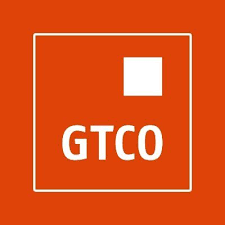NOT JUST HARD HATS
How Engineers in Nigeria Are Monetizing Their Knowledge Creatively
SIDE HUSTLE
Fabian Agore
11/20/20252 min read


Nigeria’s engineers are no longer relying solely on construction sites or technical fieldwork. With a growing demand for practical solutions and digital services, many are turning their expertise into flexible, profitable ventures.
Consulting Beyond Traditional Projects
Across the country, engineers now offer micro-consulting — short, affordable advisory sessions tailored to SMEs and homeowners. For instance, a Lagos-based civil engineer runs a ₦50,000 “30-minute foundation review” for small developers, while an Abuja electrical engineer provides quick solar audits for homes transitioning from diesel generators. These productized services allow engineers to earn consistently without full-time project commitments.
Teaching, Content Creation, and Digital Courses
As more Nigerians seek practical technical skills, engineers are cashing in through online education, WhatsApp masterclasses, and YouTube tutorials. A Kano mechanical engineer sells a ₦10,000 course on maintaining agro-processing machines, while a Port Harcourt software engineer teaches automation using components commonly found in local markets. These creators monetize through ads, paid mentorship, and course sales—all built around Nigerian scenarios.
Selling Digital Tools and Micro-SaaS
Engineers are also converting their knowledge into digital products. These range from structural design spreadsheets to small software tools for local businesses. A structural engineer in Ibadan sells editable Excel templates for calculating reinforcement quantities. Meanwhile, a Lagos-based software engineer built a lightweight inventory app for market traders, earning through monthly subscriptions. These tools generate recurring revenue with minimal ongoing effort.
Hardware Innovation and Localized Devices
Some Nigerian engineers are building physical products tailored to local problems: low-cost IoT devices, mini-solar charge controllers, and affordable testing tools. An Enugu electrical engineer assembles power-monitoring meters for businesses with multiple generators. A Kaduna agricultural engineer produces soil-moisture sensors for small farms and offers paid installation training. These innovations bridge technical expertise and entrepreneurship.
Global Freelancing and Hybrid Work Models
Remote work is expanding earning options. Nigerian engineers now take CAD modeling, embedded systems, and feasibility study jobs from international clients. A 3D design engineer in Benin City earns foreign income on Upwork designing machine parts, then runs paid weekend workshops locally, creating a hybrid income model.
By embracing consulting, digital products, education, and innovation, Nigerian engineers are proving that success today is not just hard hats, but the smart monetization of knowledge.
Visit this page daily for your dose of financial sense to power up your wealth growth. Also, share with your family, friends and colleagues.





